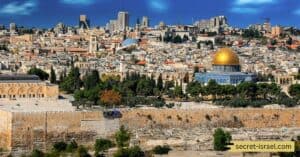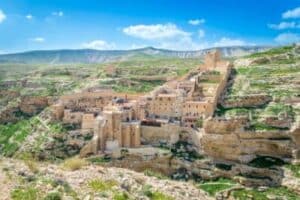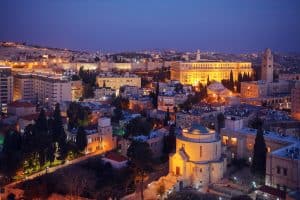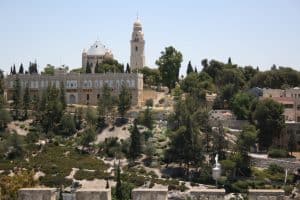Learn about the city’s key role in Middle Eastern history, as well as how understanding different cultural and religious perspectives can help foster peace and understanding in the region.
This blog explores the origins of Jerusalem, from its prehistoric settlements to the status quo in modern-day times. We will take a look at the different cultures that have made their mark on this city through war, conquest, and religion. Finally, we will consider the significance of Jerusalem in today’s world and its impact on global politics. Join us on our journey to uncover the secrets of this ancient city and its many cultures, religions, and peoples.
The Ancient History of Jerusalem
The ancient history of Jerusalem dates back to at least the 4th millennium BCE. With evidence of human habitation in the region as early as the Early Bronze Age. The city’s strategic location at the crossroads of major trade routes made it an important center of trade and commerce. The city was also known for its religious significance. The Temple Mount (also known as the Haram al-Sharif) being considered a holy site by various religions throughout history.
During the Bronze Age, Jerusalem was under the control of the Canaanites. And it is believed that the city was known as Salem during this time. The city then came under the control of the Israelites. In the early Iron Age, King David captured the city and made it the capital of his kingdom in the 10th century BCE.
In 586 BCE, the Babylonians conquered Jerusalem and destroyed the First Temple. Which had been built by King Solomon on the Temple Mount. The city was later rebuilt by the Jews who returned from exile in Babylon. The Second Temple was constructed on the Temple Mount.
Throughout its history, Jerusalem has been conquered and controlled by various empires including:
- Persians
- Greeks
- Romans
- Byzantines
- Ottomans
In modern times, the city has been a focal point of conflict between the Israelis and Palestinians.
The ancient history of Jerusalem is a complex and fascinating subject. Continues to be studied and debated by historians and archaeologists today.
Navigate here to see the location’s actual view.

The Mythical Origins of Jerusalem
Rooted in the religious and cultural beliefs of the ancient peoples who lived in the region. These myths and legends provide a glimpse into the beliefs and values of the society from which they emerged.
Most Well-Known Myths
Story of Melchizedek, the King of Salem
Who is said to have been a priest-king who lived in Jerusalem during the time of Abraham. According to the Bible, Melchizedek blessed Abraham and then received tithes from him. He is considered to be a prefiguration of Jesus in Christianity.
Story of King David’s Conquest of Jerusalem
He is said to have defeated the giant Goliath and captured the city from the Jebusites, making it the capital of his kingdom. This story is believed to be a symbolic representation of the Israelites’ belief in the power of their God to give them victory over their enemies.
In Islamic tradition, Jerusalem is considered one of the holiest places on earth. And the first qibla (the direction Muslims turn to during prayers) before it was changed to Mecca. The city is also believed to be the site of the Isra and Miraj. The night journey of Prophet Muhammad from Mecca to Jerusalem and his ascension to heaven.
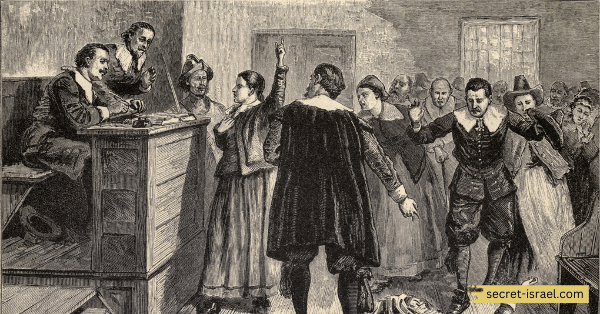
The Biblical Narrative of Jerusalem’s Founding
The Bible provides a detailed narrative of the founding of Jerusalem. According to the Bible, the city was first established by King Melchizedek, also known as the King of Salem. Who is said to have been a priest-king who lived in Jerusalem during the time of Abraham. The Bible also states that Jerusalem was originally known as Jebus, and was inhabited by the Jebusites, a Canaanite tribe. Before it was captured by King David and made the capital of his kingdom.
The Bible also states that King David captured the city from the Jebusites. Then made it the capital of his kingdom in the 10th century BCE. David’s son, King Solomon, built the First Temple on the Temple Mount. Which became an important religious site for the Israelites.
According to the Bible, the Babylonians conquered Jerusalem and destroyed the First Temple in 586 BCE. The city was later rebuilt by the Jews who returned from exile in Babylon. And the Second Temple was constructed on the Temple Mount.

The Archaeological Evidence for Jerusalem’s Early History
The archaeology of Jerusalem provides important evidence for the city’s early history. Excavations in the city have revealed artifacts and structures from a variety of historical periods, from the Bronze Age to the Roman period.
The earliest evidence of human habitation in Jerusalem dates back to the Early Bronze Age, around 3000 BCE. Excavations have uncovered evidence of a fortress and a complex system of water storage on the eastern hill of the city, which is now known as the City of David.
In the Middle Bronze Age, Jerusalem was a small city-state and a center of trade and commerce. Excavations in the area have uncovered evidence of a city wall, a palace, and a temple.
During the Iron Age, Jerusalem became an important religious center and the capital of the Kingdom of Judah. Excavations on the Temple Mount have uncovered evidence of the First Temple. Which was built by King Solomon in the 10th century BCE.
Additionally, excavations in the area of the City of David have uncovered evidence of the palace of King David and the fortifications of his kingdom.
Excavations have also revealed the remains of the Second Temple. Which was built after the Babylonian captivity and stood in Jerusalem until 70 CE when it was destroyed by the Romans.
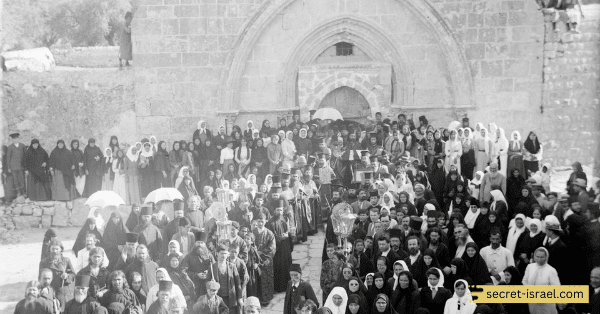
The Role of Jerusalem in Ancient Middle Eastern History
The strategic location of Jerusalem at the crossroads of major trade routes made it an important center of trade and commerce. This, combined with its religious significance, has meant that Jerusalem has been a key site in Middle Eastern history for centuries.
In the modern era, Jerusalem has been a focal point of conflict between Israel and Palestine. With each side having its view of the city’s history and importance to their respective cultures.
This dispute over ownership and control of Jerusalem continues to be a source of tension in the region today.
At the same time, Jerusalem remains an important religious and cultural center for Jews, Christians, and Muslims. And its ancient history continues to fascinate historians and archaeologists alike. The city is a testament to the long and complex history of the Middle East. And a reminder of the importance of understanding each culture’s perspective to foster peace and understanding.
The ancient history of Jerusalem is a complex and fascinating subject. Continues to be studied and debated by historians and archaeologists today. This deep understanding of the city’s past provides important insights into its present-day conflicts and potential solutions for peaceful coexistence in the future.
By understanding the cultural and religious significance of Jerusalem to each faith. We can better appreciate its complexity and importance. As well as find common ground for peaceful coexistence.
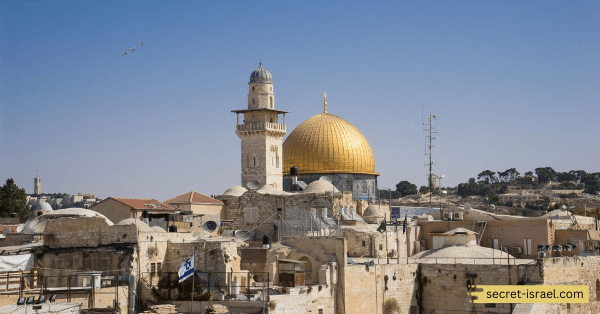
The Modern Debate over Jerusalem’s Historical Origins
The modern debate over Jerusalem’s historical origins centers around the various historical, religious, and political claims to the city. This debate is complex and multifaceted, involving a range of perspectives from archaeologists, historians, theologians, and political scientists.
One major aspect of the debate is the question of Jerusalem’s origins as a Jewish city. Some scholars argue that Jerusalem has been an important center for Jewish religious and cultural life since ancient times. While others argue that the city’s history is more complex and that the Jewish connection to Jerusalem is more recent.
Another aspect of the debate is the question of Jerusalem’s origins as a Palestinian city. Many Palestinians claim that Jerusalem has been an important center for Palestinian culture and history for centuries. That the Jewish connection to the city is a relatively recent development.
The debate also centers around the religious significance of Jerusalem. With many different religious groups claiming a connection to the city. For example, Jerusalem is considered a holy city by Jews, Christians, and Muslims. Each faith has its unique history and narrative surrounding the city.
In addition to these historical and religious claims, the modern debate over Jerusalem’s origins also involves political considerations. The ongoing Israeli-Palestinian conflict has led to intense debate. Over the status of Jerusalem as a capital city and the rights of the various communities that live there.
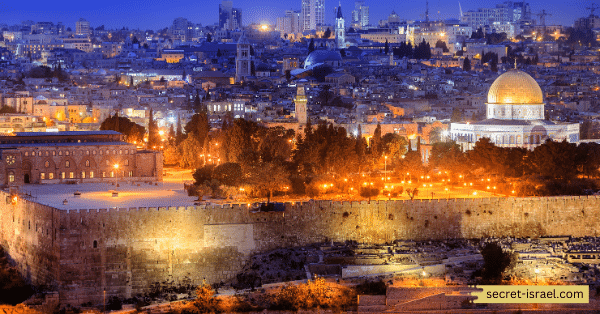
In conclusion
The history of Jerusalem is a complex and fascinating topic that has been debated for centuries. From its mythical origins to its archaeological evidence, Jerusalem has long been an important religious and political center in the Middle East. The modern debate over Jerusalem’s historical origins centers around both its religious and political claims.
And it continues to be a source of tension in the region today. Understanding the history of Jerusalem is important for finding common ground and fostering peace between different communities. By recognizing the cultural and religious significance of Jerusalem to each faith, we can better appreciate its complexity and importance. And work towards a future of peaceful coexistence in the city.






